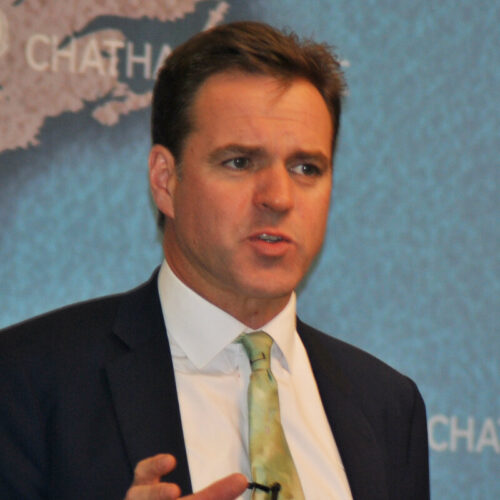Niall Ferguson is one of the most influential historians and political thinkers of our time.
A professor at Stanford and Harvard, and visiting professor at Tsinghua University in Beijing, he’s known for producing books for the general reader that take a big-picture view of history and try to generate useful lessons for the present.
His latest book, Doom: The Politics Of Catastrophe (May 2021), is another impressive tour de force of macro history. Spanning the ancient world to the present, it examines volcanic eruptions, earthquakes, famines, world wars, plagues and nuclear fallouts to try and tease out any common threads linking these disasters.
Ferguson draws on an impressive array of disciplines to improve our understanding, from traditional historical approaches to network theory and epidemiology.
One of his key conceptual moves is to challenge the distinction between “natural” and “manmade” disasters. Sure, earthquakes are not manmade whereas world wars are. But, he argues, excess mortality is always the result of poor human decision-making, and this is where politics comes in.
Unifying disasters under this one conceptual roof allows him to investigate whether there are any patterns in policy-making that lead to failure.
Given the complexity of disaster, this is not an easy task. Strikingly, he lays more blame for policy failure at the feet of bureaucracies than individual political leaders (although he does strongly critique Trump’s approach to the COVID-19 pandemic). This is perhaps to be expected given his conservative leanings, and my own view is that he underplays the responsibility of individual political leaders (a point made in this New York Times review). That said, I think he’s right to argue that even if the buck stops at the top, the failure isn’t always at the top. And that focusing too much on individual failure will prevent us from learning valuable lessons as to how we can improve institutions to manage disasters better.
In the LSE discussion about his book (see opposite), he makes an interesting point about the dilemma faced by political leaders in democracies when preparing for disasters. Not only are disasters hard to predict, but even if they could predict them, democratic leaders would need to make sacrifices in the present in order to prepare for their future possibility. And if the election cycle is 4-5 years, they aren’t incentivised to make these short-term sacrifices, especially as they wouldn’t get credit for catastrophes that are averted any way.
That said, he is wary of drawing any simplistic links between form of government and handling of disasters. Some democracies did well (e.g. Taiwan and South Korea), while others did not (e.g. the US and UK). The same can be said for authoritarian regimes. It is always necessary to look deeper at specific policies. For example, he says that Taiwan and South Korea were better at using technology to reduce virus transmission, unlike some western democracies. And perhaps they had learnt from the SARS outbreak. And, being neighbours with China, perhaps they are more paranoid about security, and therefore have a mindset that makes them better prepared.
With its dazzling array of case studies and diverse theoretical approaches, Doom is certainly a compelling read, and brings a valuable big-picture perspective to the catastrophe of the COVID-19 pandemic. As ever, Niall Ferguson’s insights, whether one agrees fully or not, cast a fresh light our world, and are hugely valuable for audiences seeking to understand the present and future in new ways.
To book Niall Ferguson as a keynote speaker for your event, contact Leo von Bülow-Quirk at leo@vbqspeakers.com.
